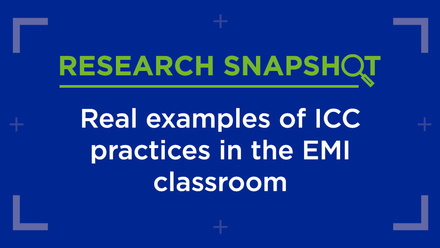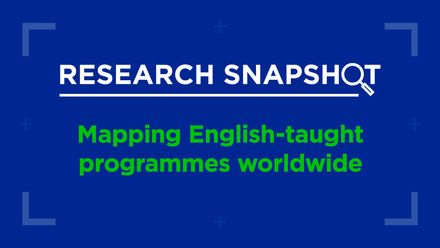Bridging borders: Collaborative teaching in European Universities Alliances

In today’s interconnected world, where borders are increasingly blurred and international collaboration is at the forefront, European Universities alliances play a pivotal role in shaping the future of education. In this regard, the Transform4Europe alliance (T4EU) signifies a noteworthy multilateral academic partnership among eleven European universities: Saarland University (Germany), University of Alicante (Spain), Estonian Academy of Arts (Estonia), Universidade Catolica Portuguesa (Portugal), University of Primorska (Slovenia), Jean Monnet University (France), University of Silesia in Katowice (Poland), Sophia University "St. Kliment Ohridski" (Bulgaria), University of Trieste (Italy), Vytautas Magnus University (Lithuania), and Mariupol State University as an associated partner. What makes (T4EU) stand out is how these universities are working together to advance new and truly inspiring ways for teachers to teach and for students to learn. Essentially, T4EU’s activities go beyond simply connecting universities: they create unique opportunities for students and academic staff to broaden their horizons and gain invaluable international experience.
This blog post explores how European Universities alliances promote educational development, with a particular focus on the role of English as a lingua franca. To illustrate this, we will share our first-hand experience with a Blended Intensive Program (BIP), a valuable format facilitated by the Erasmus+ program to foster cross-university collaboration and provide a unique opportunity for professional development. Our partners from Vytautas Magnus University undertook a specific BIP initiative, which they aptly named SALT, an acronym for Strategies Advancing Language Teaching. We will discuss how our participation in this programme has demonstrably enhanced teaching effectiveness at our institution.
SALT methodologies to foster transnational learning
The SALT (Strategies advancing language teaching) approaches applied to the educational process, which one can visualise as a dynamic toolbox, are strategically aligned with the core principles of the Transform4Europe (T4EU) alliance, aiming to foster a truly transnational and engaged learning experience. While techniques like group discussions, role-playing, gamification (through quizzes and polls), engaging debates, and collaborative creative tasks (such as short story or play creation) are widely recognised for their motivational and engaging qualities, our application within the T4EU framework emphasises specific cross-cultural and collaborative dimensions. For instance, group discussions and debates are intentionally structured to include students from across the T4EU partner universities, thereby leveraging diverse cultural perspectives and fostering intercultural communicative competence—a key objective of the alliance. Similarly, collaborative projects, like collective short story or play creation, are designed to be undertaken by multinational student teams, promoting teamwork and understanding across linguistic and cultural boundaries. To effectively support these objectives, T4EU educators utilise shared digital resources and virtual exchange platforms, alongside authentic real-world examples drawn from our partner regions. These enhance engagement and comprehension. Methodologies like "think-pair-share" are adapted to encourage not only individual reflection but also cross-national peer dialogue through virtual breakout rooms, culminating in the sharing of diverse insights with the larger, multinational group, thus sharpening focus and fostering a shared European understanding of the subject matter. Furthermore, the "chunking" technique is often applied to multilingual texts and resources, aiding comprehension for learners navigating English as a lingua franca within a diverse European context. Crucially, T4EU’s SALT strategies cultivate a supportive and inclusive learning environment that explicitly encourages risk-taking and cross-cultural peer support among students from different alliance universities. This focus on transnational collaboration and the integration of diverse European perspectives distinguishes our application of active learning, directly contributing to the T4EU alliance’s goal of building a connected and innovative European education space.
Cooperative pedagogical innovation: Showcase of VMU and T4EU
A visible illustration of the insights and practical applications discussed herein can be observed in the innovative pedagogical approaches developed and implemented by the academic staff from Vytautas Magnus University (VMU)’s foreign language department, in collaboration with other partner institutions within the Transform4Europe alliance. In particular, they initiated the series of sessions to provide a focused environment for the exchange of pedagogical expertise. Their thematic organisation, mostly focused on daily themes encompassing multilingualism and mediation, the integration of ICT and AI, the flipped classroom model, tools for developing comprehensive language skills (reading, writing, speaking, etc.), and non-formal/informal language learning strategies, directly aligns with the core principles of student-centered and innovative pedagogy advocated by the T4EU Alliance. The event fostered a highly productive environment, culminating in insightful shared reflections that directly informed the development of the strategies and examples discussed throughout this article. A key outcome was the collaborative creation of e-books enriched with supplementary exercises, generating a ‘flipped classroom’ model, which facilitates a transition from traditional, passive learning to active, experiential education through the application of simulated, authentic scenarios and problem-solving activities. All these not only exemplified the application of active learning principles but also provided tangible resources that can be adapted and implemented within the transnational educational framework of the T4EU Alliance, further underscoring the practical relevance and impact of the discussed pedagogical approaches. Additionally, the sessions integrated a task-based language teaching (TBLT) methodology, where language acquisition is inherently linked to practical application, particularly through engagement with real-world scenarios. Additionally, a follow-up online learning module enables participants to further their pedagogical development through collaborative projects and Erasmus+ mobility programs. This supports extended study or teaching assignments at partner institutions, strengthening intercultural understanding and academic collaboration across the T4EU alliance.
Shaping future perspectives within the Transform4Europe alliance
The collaborative pedagogical development process inherent in the SALT framework has demonstrated the efficacy and potential of cooperative pedagogical design. Moving forward, we are committed to leveraging the insights gained from this methodology to enrich our educational offerings, particularly through the development of joint online courses, the design of interdisciplinary curricula (integrating diverse academic fields for a holistic educational experience, including online programs), collaborative research endeavors to foster pedagogical innovation, and organising joint summer schools and intensive programs. The Transform4Europe Alliance serves as the crucial facilitating framework for these initiatives, fostering the necessary collaborative networks and shared strategic vision among its partner universities to realise the full potential of the SALT methodology in cultivating transnational educational experiences and enhancing global citizenship among students.
Building bridges in academia
In the summer edition of Forum magazine, dive deeper into the evolving role of European University Alliances (EUAs). Discover how innovative practices and inclusivity are essential to a shared future in education.






